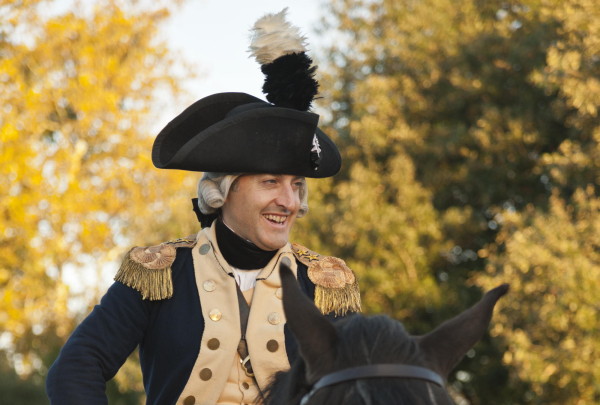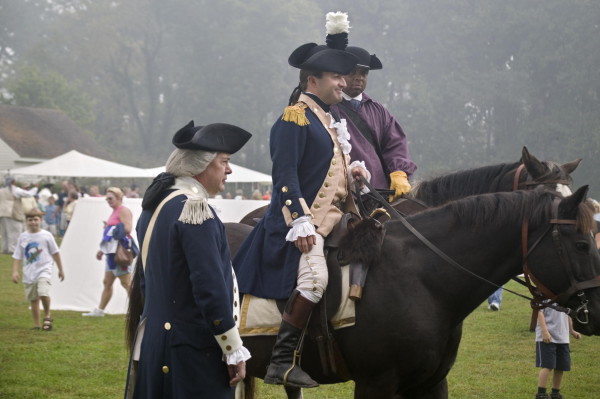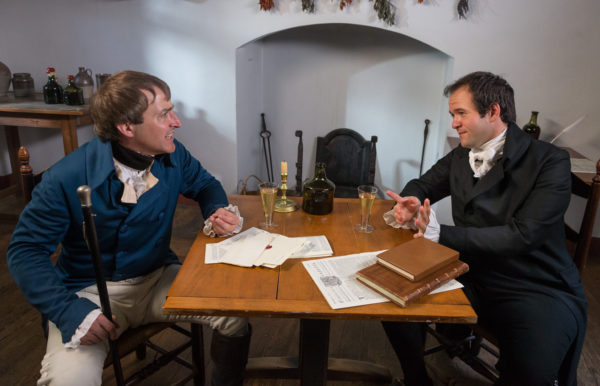 19. Nine… teen. That’s the ripe age Marie-Joseph-Paul-Yves-Roch-Gilbert du Motier de La Fayette, had reached when he landed on American shores in 1777 to lend his skills to the Revolutionary cause. He landed first near Georgetown, S.C. before heading north to present his credentials to the Congress.
19. Nine… teen. That’s the ripe age Marie-Joseph-Paul-Yves-Roch-Gilbert du Motier de La Fayette, had reached when he landed on American shores in 1777 to lend his skills to the Revolutionary cause. He landed first near Georgetown, S.C. before heading north to present his credentials to the Congress.
It was on this day July 27, a Sunday, when Lafayette arrived in Philadelphia, armed with a letter of appointment to the rank of major general, courtesy Silas Deane, Congress’s secret envoy to France.
Initially rebuffed, Lafayette earned lasting fame as a Revolutionary hero, and lasting friendships as well with many of the Founders.
One admirer was James Madison, who wrote, “I take him to be as amiable a man as his vanity will admit and as sincere an American as any Frenchman can be.”
It was actually a compliment.

Lafayette seemed to be a singularly optimistic sort of fellow. After putting up with seasickness on the eight-week voyage to America, then landing some 50 miles from the intended destination, then trudging overland to Charleston in blistering heat and arriving in the busy port city in a disheveled state, he still managed to look on the bright side, praising “the love of country and of liberty” that he observed.
Soon it was on to Philadelphia by carriage. Unlike some of his French compatriots, whose intentions tilted toward the mercenary, Lafayette sought glory and embraced the principles of the American Revolution.
Scarcely more than a decade later, Lafayette was engaged in revolution in his homeland, and fervently hoped it would enjoy similar success in the service of liberté, égalité, and fraternité.

But the French revolution was marked by a radicalism more violent and punitive than what transpired in the British colonies. In this imagined conversation at Shields Tavern, Lafayette shares a drink with James Madison, and together they wrestle with the implications of revolutionary change.
What do we mean by it? Is it acceptable if we happen to agree with its purpose? And is social or political change we might consider “radical” possible without being accompanied by violence?
These are vexing questions, both in the context of distant history as well as for us as citizens today, as we participate in the enduring debate about how and when we can support change in our own time.
Many of the details in this post were drawn from Lara Auricchio’s wonderful recent biography, The Marquis: Lafayette Reconsidered.
We love Lafayette! He was an amazing man! Do read “The Marquis: Lafayette Reconsidered”. Wonderful book, as is “Lafayette” by by Harlow Giles Unger.